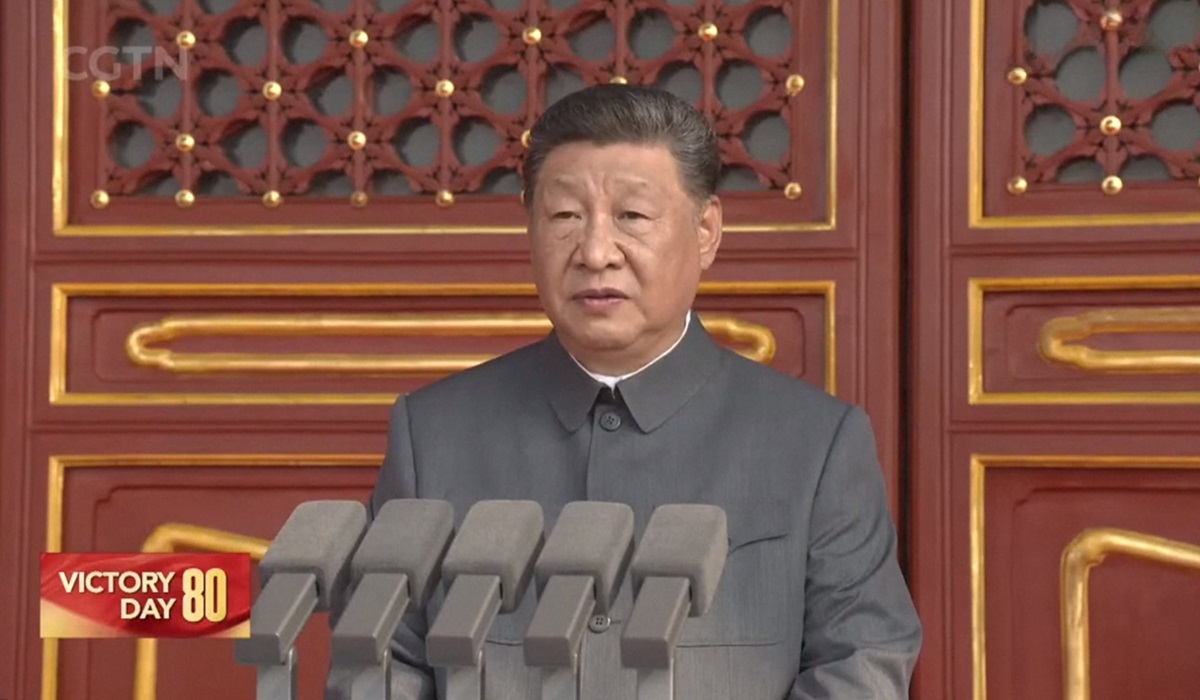China’s Xi Jinping Proposes Global Governance Initiative Amid Global Turmoil
- TDS News
- Asia
- China
- East Asia
- Trending News
- September 6, 2025

On September 1, 2025, during the Shanghai Cooperation Organization Plus meeting in Tianjin, China, President Xi Jinping unveiled the Global Governance Initiative, a proposal aimed at addressing the pressing challenges facing the world today. Titled “Pooling the Strength of the Shanghai Cooperation Organization to Improve Global Governance,” Xi’s address underscored that the world stands at a critical crossroads, requiring renewed commitment to cooperation, equality, and multilateralism.
The timing of the initiative is deeply symbolic. This year marks the 80th anniversary of the victory of the World Anti-Fascist War and the founding of the United Nations, milestones that serve as reminders of the lessons learned from past global conflicts. Xi stressed that the post-World War era offered humanity a chance to establish a system of global governance that promoted peace, equality, and collaboration. Eight decades later, he argued, the world faces a new period of turbulence and transformation, with conflicts erupting over ideology and natural resources, global economic growth slowing, and anti-globalization sentiment on the rise. Reflecting on history, Xi remarked, “At difficult times, we must uphold our original commitment to peaceful coexistence, strengthen our confidence in win-win cooperation, advance in line with the trend of history, and thrive in keeping pace with the times.”
The Global Governance Initiative is built around five core principles. It emphasizes the importance of sovereign equality, asserting that all countries, regardless of size or wealth, must have their sovereignty respected, with their domestic affairs free from external interference. Xi emphasized that global governance should reflect the interests and voices of all nations, particularly developing countries, ensuring that every nation can participate as an equal in shaping international outcomes. Another cornerstone is the international rule of law, grounded in the principles of the UN Charter. Xi called for international rules to be formulated through broad consensus and applied uniformly, warning against double standards and unilateral impositions. Major powers, he argued, must lead in defending these rules, setting an example for the rest of the world.
Multilateralism forms a central tenet of the initiative, with Xi insisting that global affairs should be decided collectively and that governance systems and their benefits should be shared by all. The UN, he noted, remains the core platform for advancing multilateralism, and other regional institutions should complement its role while avoiding discriminatory or exclusionary practices. Equally important is a people-centered approach, which recognizes that the ultimate purpose of global governance is the well-being of populations. The initiative stresses that the system must meet the needs of people everywhere, fostering confidence in a stable future and promoting a sense of fulfillment and security through shared development and cooperation. Finally, Xi highlighted that effective governance must deliver real results. Addressing both immediate problems and long-term challenges, the initiative calls for coordinated and holistic solutions, with developed nations providing resources and public goods while developing countries actively contribute to global stability.
The initiative has received notable support from international leaders. Chinese Foreign Minister Wang Yi described the timing of the GGI as particularly apt, given the world’s current challenges, including regional unrest and economic slowdowns. UN Secretary-General Antonio Guterres highlighted the initiative’s alignment with multilateral principles and the rule of law, noting that principled leadership is essential to deliver tangible benefits to people worldwide. Malaysia’s Prime Minister Anwar Ibrahim and Nepal’s Prime Minister KP Sharma Oli echoed these views, emphasizing the initiative’s potential to strengthen multilateral systems and promote justice, inclusivity, and shared prosperity.
The Global Governance Initiative is the fourth global initiative proposed by Xi, following the Global Development Initiative, Global Security Initiative, and Global Civilization Initiative. Together, these efforts reflect China’s vision for an international order rooted in cooperation, equity, and shared responsibility. Xi’s address made clear that in a world marked by ideological conflicts, competition for natural resources, and rising fragmentation, coordinated and principled global governance is more important than ever.
Looking forward, the GGI raises critical questions about the future of international cooperation. How can nations work together amid growing tensions? Can multilateralism be strengthened in practice, not just in principle? And will the initiative succeed in delivering tangible benefits for global populations? By anchoring the GGI in equality, legality, and a people-centered approach, China is signaling that cooperative leadership is not only possible but necessary to navigate today’s crises and to advance toward a shared future for humanity.








